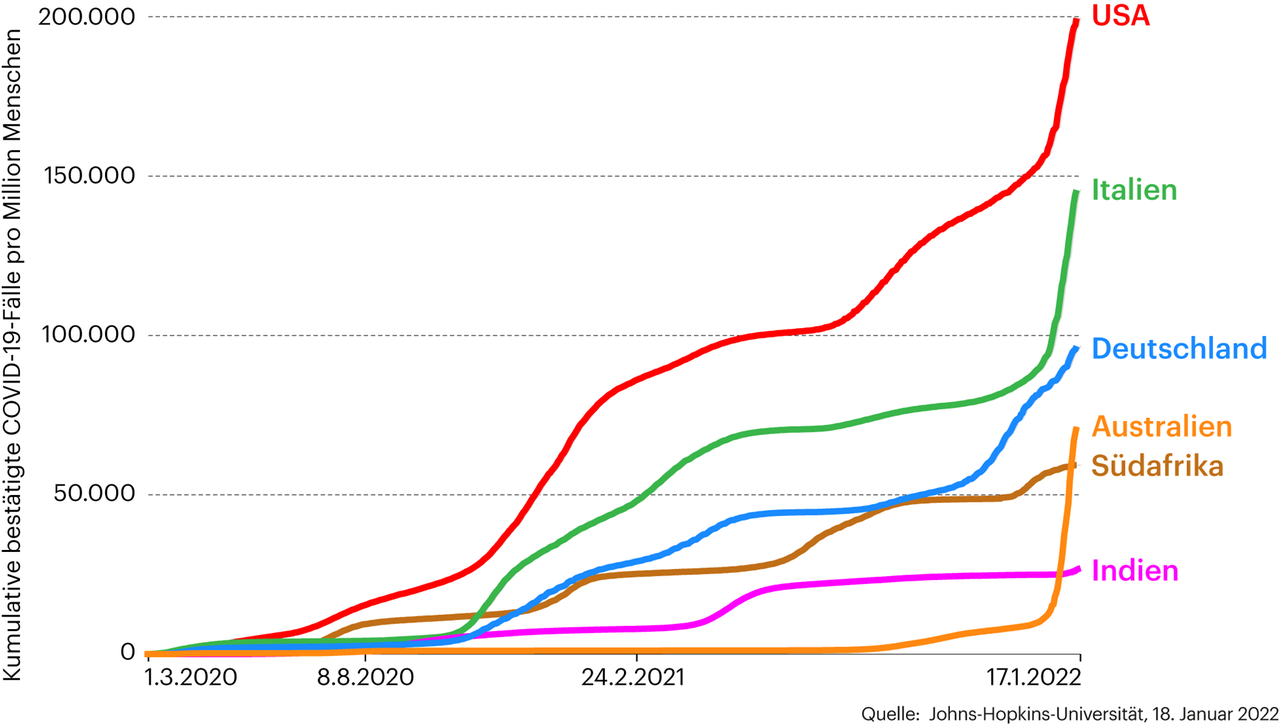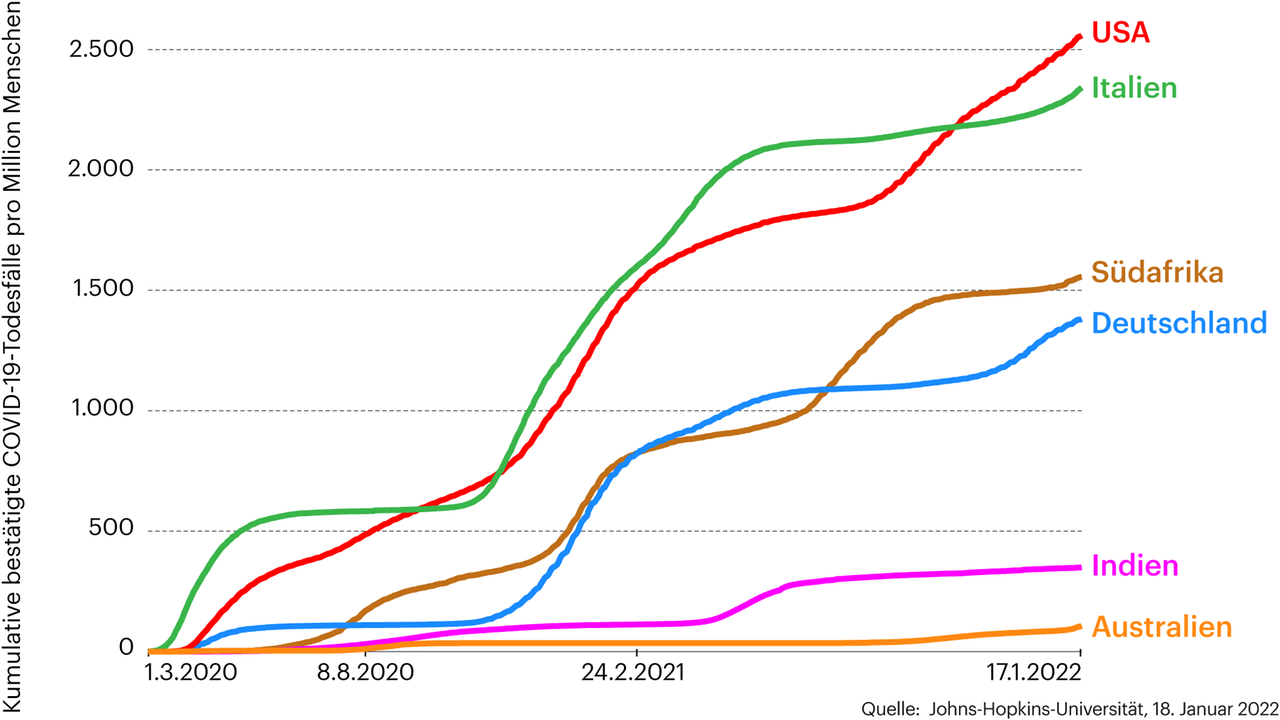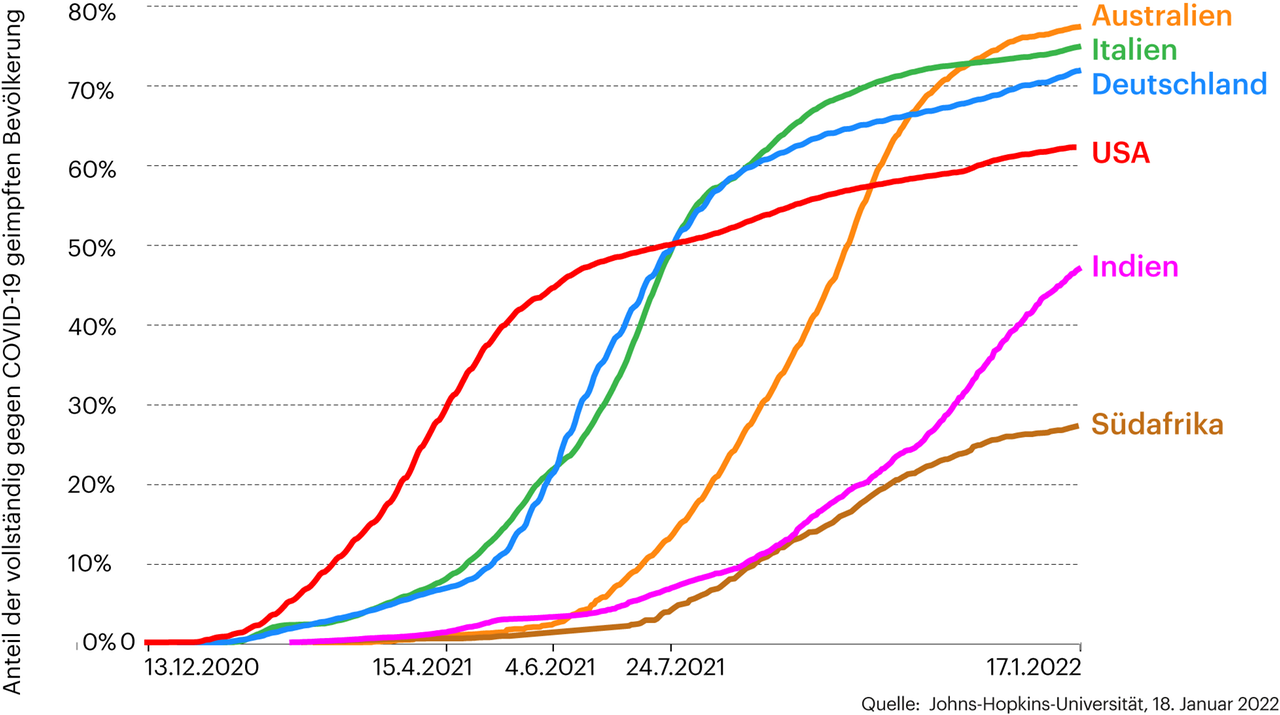–
Fighting the corona pandemic is not a sprint, but a marathon. It is not yet possible to say which countries will do particularly well in the end, especially since new virus variants such as Omicron are constantly changing the situation. As a result, countries whose strategy initially seemed successful can suddenly fall behind.
In a five-part series, research is currently focusing on how the corona strategies of selected countries have proven themselves so far. How strict were the measures? How effectively did they succeed in slowing down the spread of the virus and reducing the number of Covid deaths? A look at Australia.
Like some other countries, Australia has taken a special path: Zero-Covid. Australia closed its borders quickly and consistently, while public life was shut down at the same time. The elderly and the chronically ill were practically not allowed to leave the house at all. Outbreaks were quickly ended with effective contact tracing and quarantine measures. And when that didn’t help, entire cities were sent into lockdown. Melbourne holds the world record with a total of 262 days – more than eight months.
yes it worked Up until the omicron wave, Australia only recorded a good tenth of the cases in relation to the population as Germany. Australia was among the countries with the lowest mortality rates in the world. These are very clear successes of the Zero Covid strategy. The situation is similar in New Zealand and South Korea, which also followed this path. These are island states, which can of course close their borders more easily, but some Canadian provinces were also initially successful with this approach.
 –
––
This strategy can only work if the population really supports it. Many people in Melbourne have suffered greatly from the long loneliness.
 –
––
The surprising conclusion: mortality was not only lower, economic development was also better because the lockdowns, although strict, were usually only necessary for a limited time and in limited places. The Australian government has also spent a lot of money to get poorer citizens and companies in general through the crisis. New South Wales even gave out restaurant vouchers in November 2020.
 –
––
Clear answer: no. Australia has officially ended the Zero-Covid strategy, the new motto is: “Let it rip”. The conservative government is basically saying: everyone will get Omicron, the consequences are not that bad, so we are more or less lifting all restrictions. Everyone should take care of their own health.
Accordingly, the number of infections is going through the roof, the seven-day incidence is around 3,500, much higher than in Germany. In the meantime, Australia has its own restrictions again, but there is great uncertainty, tests are hard to come by and shelves are empty. In addition, the entire country is not participating in the strategy reversal. Western Australia is sticking to zero-Covid and not letting in citizens from other parts of the country.
It wasn’t just a success story: the quarantine hotels, of all things, were often the starting point for outbreaks. Above all, the Australians took a lot of time to vaccinate – a bit along the lines of: “We don’t have the virus, so there’s no hurry.” However, this took revenge in the middle of last year when there was a major delta eruption in the Sydney region and a strict lockdown became necessary again. That acted as a wake-up call. Australia has now overtaken Germany in full vaccinations. However, Germany is clearly ahead when it comes to boosters.
 –
––
The bottom line is that the zero-Covid strategies have been successful for a long time – where they were possible – but dealing with extremely infectious variants and, above all, the way back to normality is difficult. The ability to control the entry of infected people is crucial. That would have been difficult for the closely networked Germany.
–


